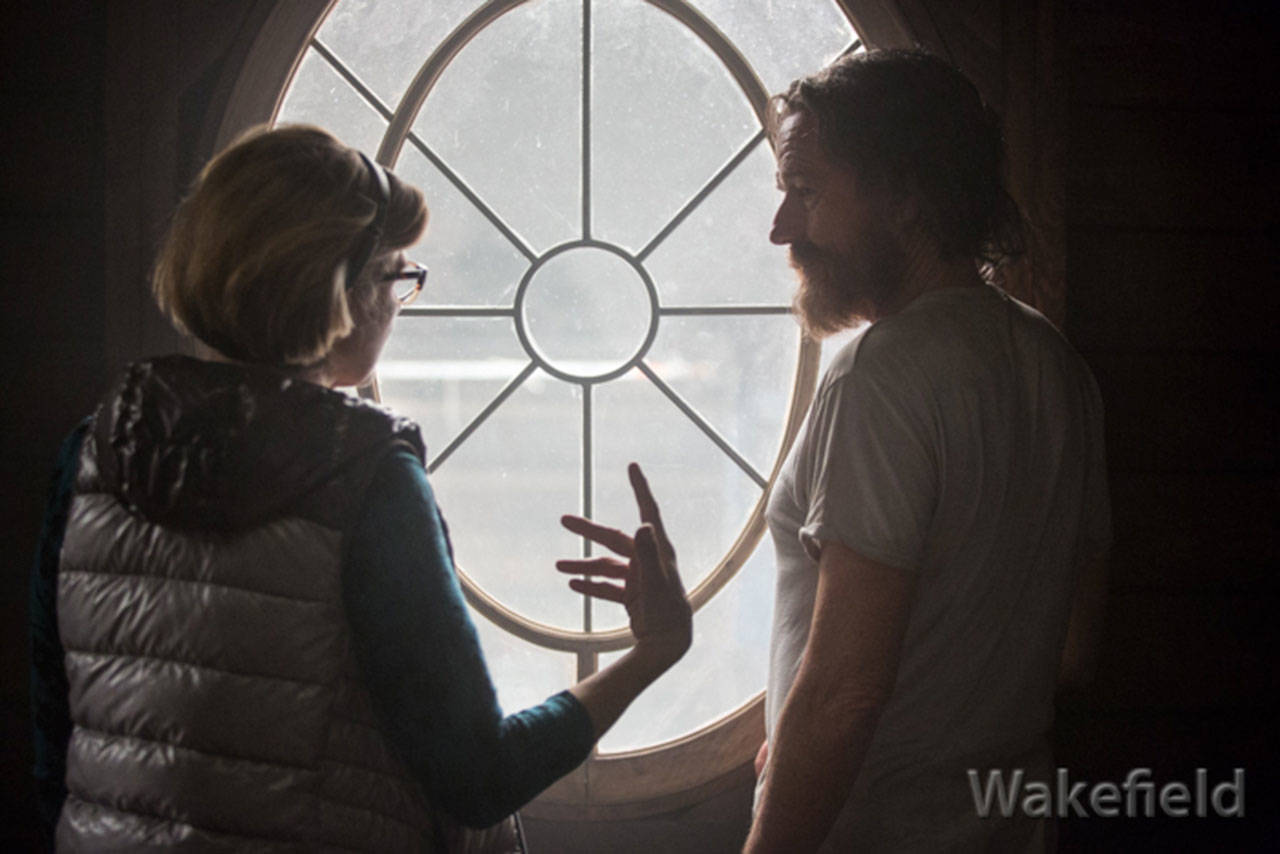CORRECTION: The screening of “Wakefield” will be held at 7 p.m. Thursday, May 4, at the Vashon Theatre.
As soon as she’d read E.L. Doctorow’s 2008 short story “Wakefield,” screenwriter-director Robin Swicord knew it was her next film. The story, she said, unfolded in her mind like a movie she’d already seen, a not unfamiliar experience for the Oscar-nominated writer of “The Curious Case of Benjamin Button.”
Now, just over eight years later, Swicord’s film is slated to open in New York and Los Angeles at the end of May. But before its national release, “Wakefield,” starring Bryan Cranston and Jennifer Garner, will receive a sneak preview at 7 p.m. Thursday, May 4, on Vashon Theatre’s silver screen. All proceeds will be donated to Vashon Community Care.
Out of all the theaters in the country, why Vashon? For the past 27 years, the island has been a refuge and second home for Swicord and her family, and she wanted to give back to the community.
“I thought it would be nice to show the film here as a ‘thank you’ to Vashon. I thought, ‘What’s the best use of this?’ I’d read about how much Vashon Community Care needed help, so I approached Eileen (Wolcott, owner of Vashon Theatre). She’s an island treasure, so community-minded, and she agreed to donate the theater,” Swicord said in a recent phone interview from her Los Angeles office. “I try to have Vashon as my private place, but I felt that this was something good to do. I wrote my first draft of “Wakefield” here.”
Adapted from Doctorow’s eponymous story, “Wakefield” dives deeply, dramatically below the surface of a model but predictable suburban lifestyle to ask questions about choices that are rarely raised. What if a successful New York attorney, Howard Wakefield played by Cranston, returned home late from the city to his perfect house, and instead of greeting his ideal wife (Garner) and two daughters, he wound up sleeping in the garage attic? What if he stayed there for the next year, watching his family through binoculars, narrating his bitter yet witty reactions as they deal with the sorrow and confusion around his mysterious disappearance? What if after a year of Dumpster-diving he wanted to return to his family but didn’t know how to rise from his own illusional death?
“It’s the universal impulse to flee our obligations, be allowed to step back and see ourselves from outside,” Swicord explained. “Wakefield is not sympathetic, but an interrogation happens: How are we Howard Wakefield? How is he driven forward emotionally? What does he want and what carries him through? He doesn’t know at first. He has an impulse and follows it, then wonders, ‘What am I doing out here?’ It is a strange movie, and yet audiences are gripped by it. Cranston was born to enliven this character.”
Despite his less-than-admirable behavior, Wakefield’s choice to stop and look inside requires courage, Swicord said, and as he travels this uncharted path, he transforms from dropout to observer to seeker.
“In the last part, he does not censor himself anymore and lives with what he finds,” Swicord said. “He begins to understand what he was. He loves his family, is angry at first, reviewing the past and projecting onto his family, then falls back in love, but is almost paralyzed not knowing how to come back. There is a tremendous emptying of the self, no longer thinking about himself, and he has to make a decision about what he’s going to do.”
The notion of withdrawing from one’s life intrigued Swicord as much as it must have sparked Doctorow after he read Nathaniel Hawthorne’s original 1835 “Wakefield.”
“It’s a story that lots of people have adapted,” Swicord said. “It’s a literary trope, yet Hawthorne even writes in the second paragraph to the effect that if you don’t think this is the way the story should go, do your own.”
Adaptation is the name of Swicord’s game as a screenwriter whose credits, among others, include “Little Women,” “Memoirs of a Geisha,” “Mathilda” and “The Jane Austen Book Club,” which she also directed.
“All adaptations are interpretations, and they exist on their own,” she said. “For stories like ‘Wakefield,’ you look for qualities of drama, revelation, transformation, sacrifice, suffering — things we go to the movies to see — all from Aristotle’s ‘Poetics.’”
And then there’s the humor peppered throughout Swicord’s script. It’s something she noticed Doctorow — with whom she had a close correspondence and often “heard” his voice when writing — always mixed into his novels.
Still, while analytics and humor are beneficial tools of the screenwriting trade, it all begins for Swicord with an unnamed knowing, a feeling, the imagination that rises up inside.
“Creativity is alive,” Swicord said. “Something opens up and vibrates, comes from the edges, and then I start to go, ‘Oh, that’s it.”


